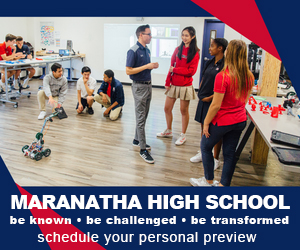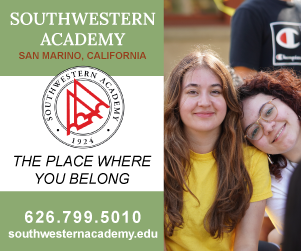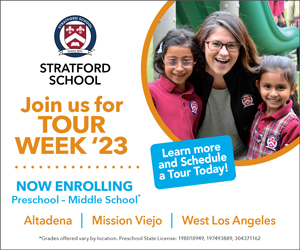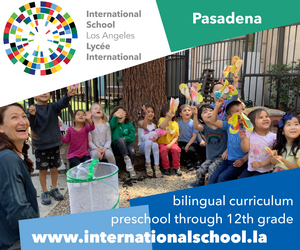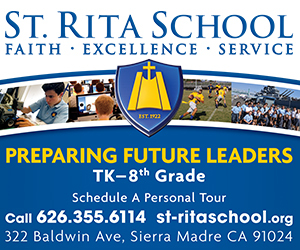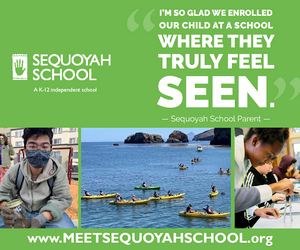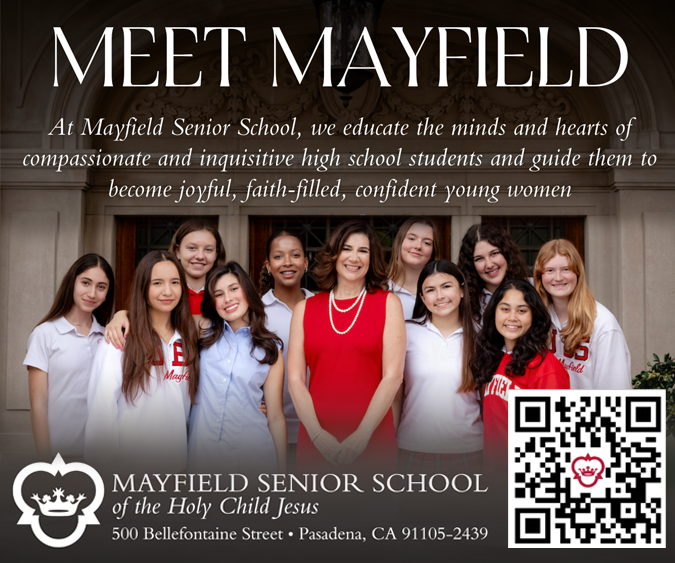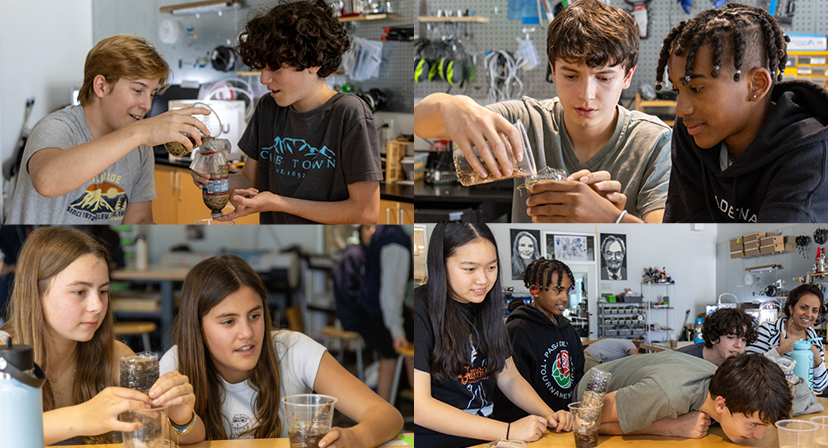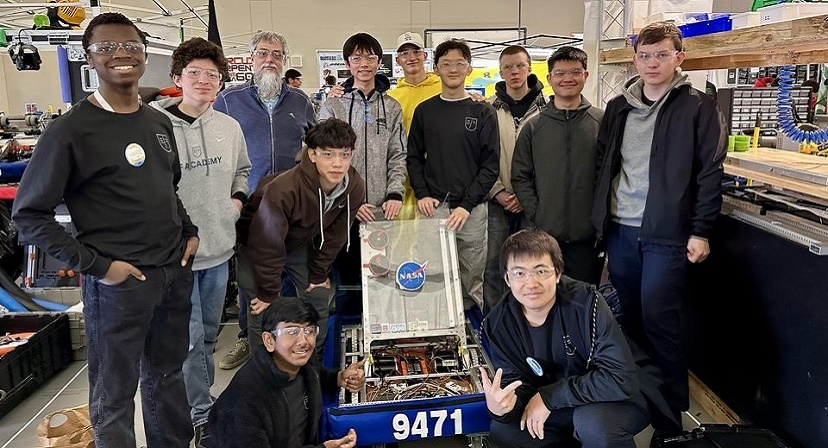Flintridge Prep Seventh Graders Help Brainstorm SEL Computer Game
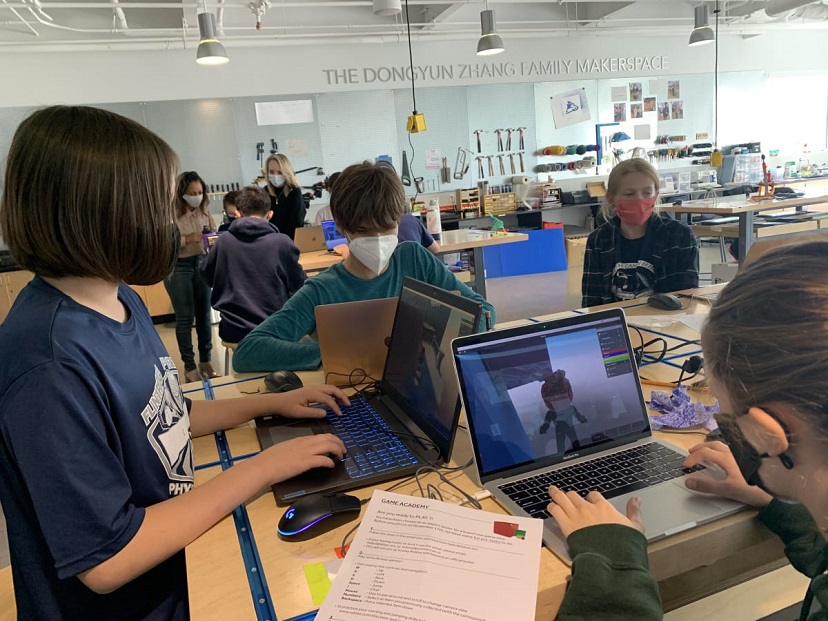
Empathy is one of the key tenets of design thinking and innovative design. Whether you’re creating a product, service, or software, taking feedback and observing how people interact with your prototype can change your way of looking at a problem. Empathy often leads to a better result or solution.
Prep’s Design Thinking course, taken by all 7th graders, emphasizes empathy as the students learn to brainstorm, prototype, collaborate, and test solutions to a real-world problem. “We talk about empathy in design research. You need to really talk to your audience. You can’t just assume you know what they want,” Makerspace Coordinator and Design Thinking teacher Erin Thomassen explains.
This fall, some 7th graders had the chance to be on the other end of the design thinking process. Members of a major tech gaming division visited Prep’s campus virtually, consulting with a group of students about a social-emotional learning (SEL) computer game created within Roblox, the popular online game platform and game creation system.
The opportunity began when Katrina Jefferson, a Prep parent to Noah ’26 who is a program advisor for the company’s gaming division and has worked with other major tech and gaming companies, connected Thomassen with the developers who were seeking insight from their target audience—middle and high school age students. Thomassen chose four students with diverse experiences with gaming, Finley Hamilton ’27, Adrienne Hitchcock ’27, Derrick Lin ’27, and Oliver Rao ’27, to act as consultants, providing feedback about what kind of experience they’d enjoy with this type of game.
“The team asked the students a lot of questions, like, ‘What would your hero be like? Would there be a villain? What kind of challenges or rewards would you get? What’s the end goal of the game?’” shares Thomassen, who said that the company was keen on creating a collaborative, rather than competitive, game. “When you’re playing a collaborative game, people have various skill sets and you may have to rely on different team members to accomplish a task because that’s not your strength. In this way, students learn to delegate tasks.”
Rao is an avid gamer and has had experience playing Roblox games. “When I was first asked to participate, I was excited to help kids with emotional learning,” Rao says. “Some of the things the tech company asked about were what makes a good game.”
After the brainstorming session, the design team developed the game over a month. On November 18, eight 7th graders—including the original four—broke into teams to play the obstacle course game during Community Block.
Both Rao and Hamilton really enjoyed the interactions they had playing the game, and also with their classmates. “I liked that the game was about working with your classmates and building partnerships with people that I might not have reached out to work with on my own, and it was fun but I was also learning with it,” says Hamilton.
“When I first played the game, I remember having a bunch of technical difficulties, but I did take note that the game was developed really well and was a good way to build team working skills,” says Hamilton. “I told the [design team] about how they could maybe add some more in-depth reflections about the game at the end.”
One outcome that surprised the tech company and Thomassen was how much the students helped each other. “When a few students had finished the course,” Thomassen says, “they came back to help others who were still playing.”
“My classmates were very helpful whenever I got stuck on one obstacle and they didn’t mind coming back, even if they were far ahead, to come and get me to where they were,” says Hamilton, who isn’t as much of a gamer as Rao, but enjoyed the collaborative, team-building format of this particular game.
In observing the students play with each other, Thomassen reflected upon how much connection and conversation was happening outside of the game. “They were all in the same room, at the same table, playing the game, and that computer game facilitated interpersonal connection in person, rather than detracting from it,” she says, noting its potential application to empathy-building activities inside and outside the classroom.
As the students develop design thinking skills over the course of the school year, particularly around empathy in design, the game participants will likely lend their knowledge of the process in the gaming industry by describing how important their feedback has been to this project. Thomassen notes that the students also recognized a future career path as game researchers and developers, particularly as the industry expands and incorporates SEL into game designs.
Flintridge Preparatory School, 4543 Crown Ave., La Cañada Flintridge, (818) 790-1178 or visit www.flintridgeprep.org.





